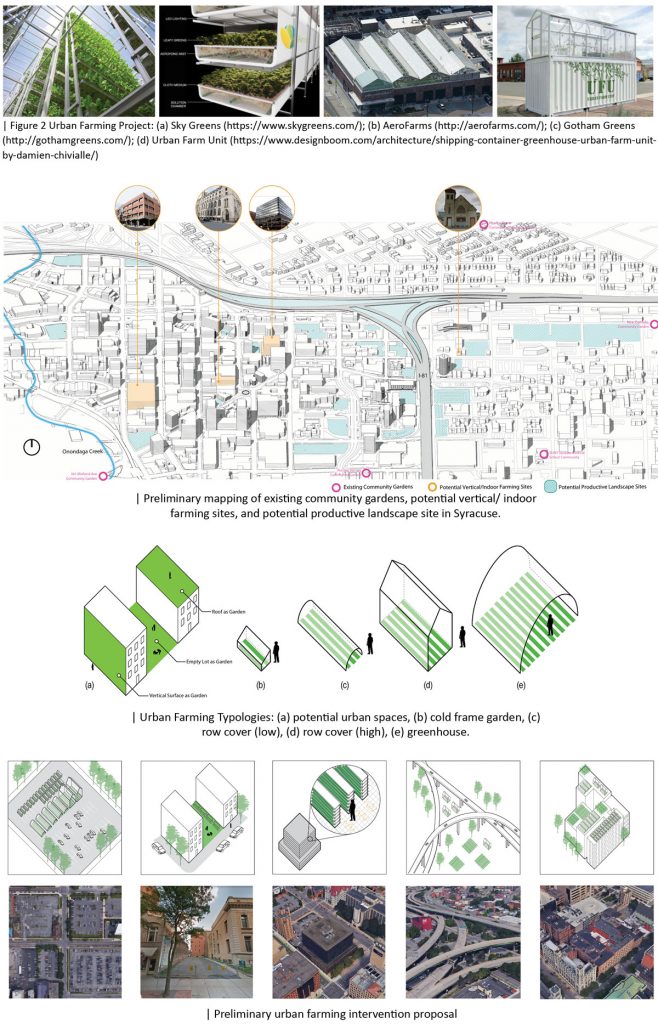There are emerging efforts from cities around the world to incorporate urban farming into its city core to building a more resilient food system and foster sustainable urban growth [1]. Cities including Madison, Cleveland, Baltimore, Detroit, Seattle, Pittsburgh, and Bloomington are actively implementing urban agriculture through comprehensive plans and zoning ordinances and incentives [2]. There are also emerging efforts in Syracuse and Central New York , including the organization Syracuse Grows and notable urban farm projects including Southwest Community Learning Farm, Brady Faith Farm Project, and Salt City Harvest Farm. The City of Syracuse and Onondaga County actively supports these efforts as evidenced by the Syracuse Sustainability Plan, ReZone, and existing partnerships.
Urban farming improves the health of city residents by providing locally grown nutrition-rich fresh food and increases green spaces, fosters the sense of community, and attracts food industries that create jobs and new businesses. Because food is produced right in the heart of the city, there are also environmental benefits from urban agriculture, including reducing energy usage for storage and transportation, fostering biodiversity and ecosystem servies, encouraging composting, and lowering the heat island effect (through increased green spaces).
Among the variety of approaches in implementing urban farming, the field of controlled environment agriculture using hydroponics, aeroponics, and aquaponics is promising. Some of the notable indoor vertical farming projects include the Sky Greens in Singapore, and Aerofarms in Newark, and Gotham Greens in Chicago and New York. Furthermore, urban farming systems (e.g., rooftop are greenhouses, green facades, and shipping container units) that utilize modular approaches are also on the rise (See Figure 2).
In this context, this project aims to integrate controlled environment agriculture with the urban fabric of downtown Syracuse. Although there have been efforts from the city, local communities, and scholars on various aspects of urban farming (e.g., social justice, food system, and community gardens), a focused effort on developing city-center approaches and a concrete proposal for implementation have not yet been conducted.
Reference
[1] Hannah Koski ed., 2012, Guide to Urban Farming in New York State, Cornell Small Farms Program
[2] John E. Mogk; Sarah Wiatkowski; Mary J. Weindorf, Promoting Urban Agriculture as an Alternative Land Use for Vacant Properties in the City of Detroit: Benefits, Problems, and Proposals for a Regulatory Framework for Successful Land Use Integration, 56 Wayne L. Rev. 1521(2010)

